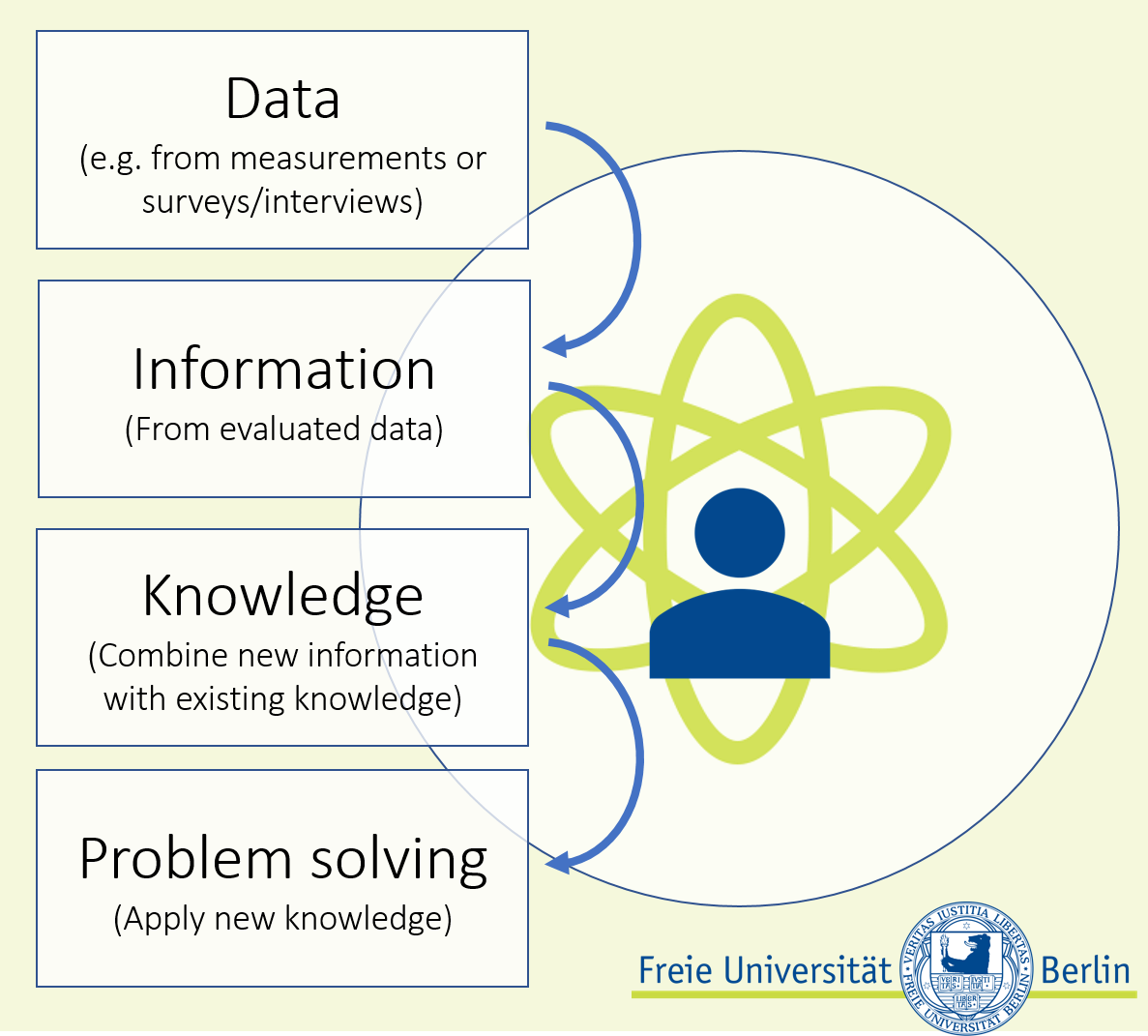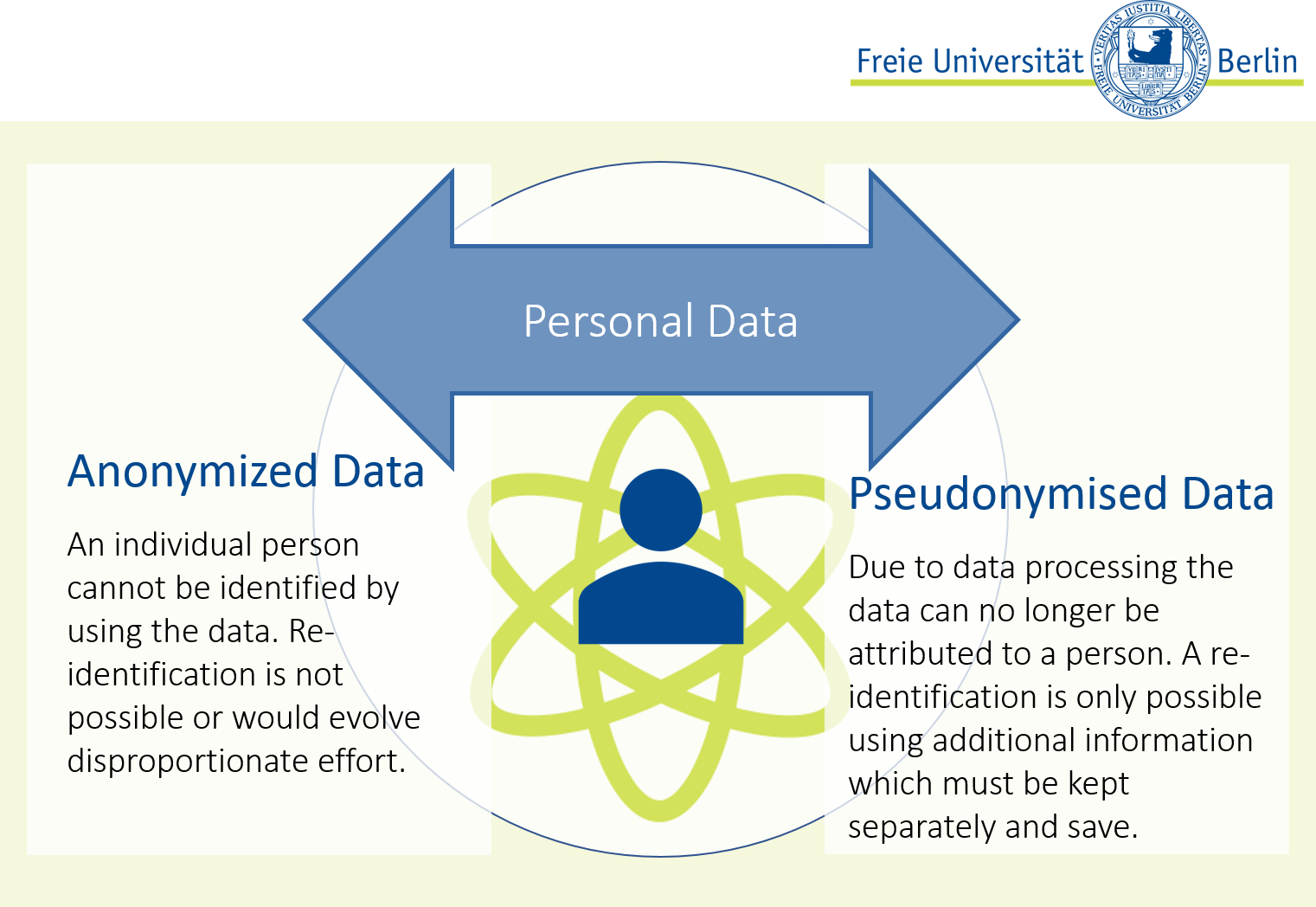Privacy statement
Scientific research at the Institute for Veterinary Epidemiology and Biostatistics of Freie Universität Berlin – Privacy statement
Collecting data for scientific purposes is a valuable good. The Institute for Veterinary Epidemiology and Biostatistics of Freie Universität Berlin (IVEB) is aware of the responsibility to protect this good and to appreciate the trust of participants taking part on surveys and data collection.
To make science transparent and to fulfill the specifications of the data protection law we give an overview of our objectives for collecting scientific data and of the measures we take to protect all of these data.
Data protection is legitimately a question of national as well as international legal requirements. Therefore data collection and its processing is done with the requisite care in accordance with the legal requirements of data protection as well as the directives given due to good scientific practice.
Participation of third parties in scientific projects is always voluntary and takes place only after information on the aims and ways of collecting data and informed consent on the participation.
At this point, we want to give our sincere thanks to all prior and future participants for their support.
1. Why is it necessary to collect data for scientific reasons?
In the light of numerous open questions in animal health care scientific knowledge is important to enhance health care for companion and farm animals. In general, data serve to give reliable answers on precise scientific questions (e.g.: How many dogs have diabetes and what problems do occur during therapy?). Appropriate data is required to close knowledge gaps and to develop new or even better solutions. Data can be collected by surveys or measurements. The data acquired here are organized and structured in databases and statistically analyzed to give general statements on one hand and to draft solutions or recommendations based on these results on the other hand.

2. Why am I sometimes asked personal questions such as age, gender and income?
In general, it is not possible to collect data from every single individual of a population (e.g., not all dog owners in Germany can be asked). Thus, we need to rely on a sample, which should be near to an ideal representation of the total population. Demographic data such as gender and year of birth are needed to ensure the representability of the sample and may be unrelated to the scientific question itself.
Demographic (personal) data differ from private data. Differences are further explained in 6.
3. Is it possible to track me as a person using the collected data?
The institute collects data only for scientific and statistical purpose. Whenever possible data are collected anonymized so that it is not possible to determine the identity of a participating person by lawful means. Owing the study design it is possible that identification of participant cannot be prevented (e.g. face-to-face interviews). In such a case, personal data will not be evaluated or will be pseudonymized. If storage and processing of personal data is necessary, it is done in an either anonymized or pseudonymized way (see further explanation in 6).
4. What happens with the data?
Step 1: Collecting and storage
Collection of scientific data can be done in various ways:
As part of surveys (online and/or offline) data are collected in terms of answers to specific question-items. In accordance with the requirements of good scientific practice, only necessary and reasonable questions will be asked to fulfill the research goal. The data collection follows the legal requirements of the European General Data Protection Regulation (GDPR) and includes a clear informed consent of the participant in advance.
As part of face to face interviews, clinical or epidemiological studies (e.g. sample collection on dairy farms) it may be necessary to collect personal data. For example, if you want to visit a farm you need an address or if the interviewee introduces him/herself by name you will be able to connect the person to the data in the first instance. In those cases, personal data will be surveyed at the beginning but for further processing data will be anonymized or pseudonymized.
For the collection and processing of biological samples separate regulations apply. However, these regulations are subject to the data protection law as well. Participants of studies with biological sampling will be informed transparently and extensively about the kind of samples and how samples need to be taken as well as how samples will be processed. Before the study starts, participants have to sign an informed consent addressing all planned steps of the study.
All collected data are stored on servers of the Freie Universität Berlin and are under responsibility of the high standards of protection. At any time, unauthorized persons are not able to access the data legally.
Data collected due to scientific purposes have to be stored for at least ten years. This guarantees that results can be rechecked in any case of accusation.
Step 2: Processing/Evaluation
Statistical analyses will always aim to reveal causality or underlying relevant associations (e.g. an association between feeding and the development of diabetes in dogs) and do not include analysis of individuals. In case of personal data collection, data will be anonymized or pseudonymized for further processing. Analyses will only be performed on computers of the Freie Universität Berlin.
Step 3: Publication
Data are only published in summarized and condensed form. Raw data are not published.
Step 4: Data use and transmission
Data are not passed to institutions beyond the IVEB in general. One exception are scientific purposes where data of several studies need to be merged. These so called secondary data use underlies legal requirements, too, and is only done with technical and organizational methods that prevent a misuse of the data.
Raw data including potential personal data will not be given to third parties without explicit given informed consent. Raw data will also not be given to financiers of contracting authorities, thus manipulation and unlawful further processing can be prevented.
At any time during and after collection, management, analysis and evaluation, data are treated confidentially and are only used for scientific purposes. Despite all precautions, web based data storage and transmission can have security gaps, so absolute protection cannot be guaranteed.
5. If I have a question referring to data protection at IVEB, who is my contact?
In first instance, the project leader has to take the responsibility that during a scientific project all data protection acts are complied. In second instance, the head of the institute will answer your request with pleasure.
Further, the Freie Universität Berlin has a data protection officer who will be available for inquiries and is responsible for any data protection assessments (Art. 35 General Data Protection Regulation (GDPR)).
6. What means...
Private and personal data?
Private data means information that directly or indirectly links a data record to an individual. This could be for example names, a code number, location data, online IDs, or similar special characteristics that are part of a person’s physical, physiological, genetic, psychological, economic, cultural or social identity.
Those private data need to be distinguished from personal data that seem to be private at some points (e.g. educational background or income) but do not allow direct or indirect linkage to an individual. Therefore, these data do not come under the data protection law. Respective personal data are collected to assess the representativeness of the study.
Processing?
Data processing means any kind of operation that may be conducted in connection with the data with or without using automated procedures. This includes collecting, measuring, administering, organizing, storing, modifying, reading out, querying, using, submitting, disseminating or any other way of provision, comparing, linking, restricting, deleting or destructing data.
Anonymization and pseudonymization?
Anonymization means any procedure that makes an allocation of data and individual impossible. It is not possible to retrieve the allocation after anonymization.
In contrast, using pseudonymization an allocation of data and individual is possible under certain circumstances. For this, private data are stored separately from the study data. An allocation of an individual with its scientific data is only possible due to an identifier (pseudonym, e.g. a code number), which is given to each individual and that is stored in the private data as well as in the study data. Information about individuals and their pseudonym/code number will be stored in a separate and access-protected document and is not given to third parties. Pseudonymization may be needed e.g. in longitudinal studies, when participants are investigated repeatedly: study nurses visit the participants and take the samples (need to have access to private data), researchers investigate the samples and evaluate the results (without access to private data).

Informed consent?
This means that an individual gives his or her unambiguous declare of will that he or she agrees with the data collection and processing. This declaration must be given in an explicit way, for example by placing a checkmark. Basic condition is that the consent is given after the individual has received sufficient information. Informed consent is always given voluntarily.
Right to erase?
Every participant has the right to obtain from the data controller the erasure of the personal data used (Art. 17 GDPR). Furthermore, the participant has the right to correct data subsequently (Art. 13). To enforce this right the participant can informally revoke (verbally or in writing). Revocation has to be directed to the project manager or the institute management.